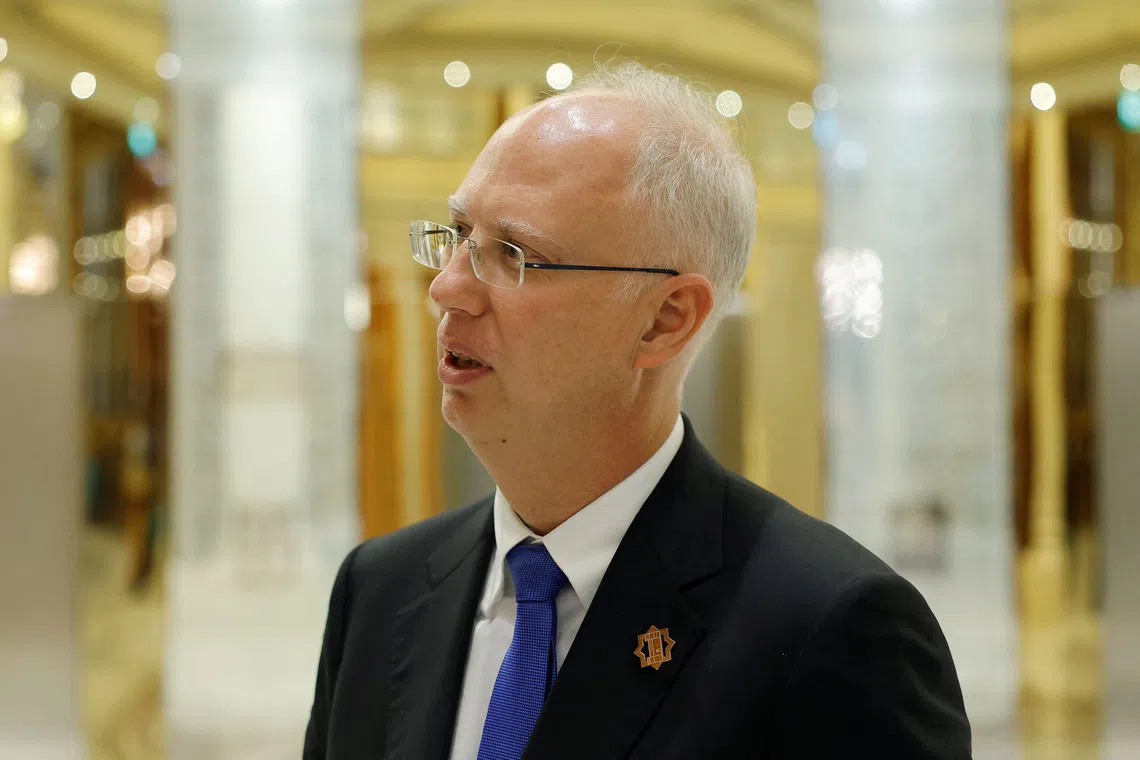Putin’s economic envoy arrives in US for talks, after oil companies sanctioned
Sign up now: Get ST's newsletters delivered to your inbox

The trip to the US by Russian envoy Kirill Dmitriev comes two days after Washington imposed sanctions on Moscow’s two biggest oil companies over Moscow's war in Ukraine.
PHOTO: REUTERS
Follow topic:
MOSCOW - Russia’s top economic negotiator said on Oct 24 he had arrived in the United States for talks, two days after Washington imposed sanctions
The visit comes with increasing US frustration at Russian President Vladimir Putin and his refusal to agree to a ceasefire in the nearly four-year Ukraine war.
Earlier this week, US President Donald Trump scrapped planned talks
“Arrived in the US to continue the US–Russia dialogue – visit planned a while ago based on an invitation from the US side,” Putin’s top economic envoy Kirill Dmitriev said on X.
The envoy told Russian news agencies that he would convey Russia’s position on the Ukraine war in meetings with Trump administration officials.
“Ukraine, unfortunately, is disrupting the dialogue that is necessary, and is doing so again at the request of the British, at the request of the Europeans, who want the conflict to continue,” state agency Tass quoted him as saying.
Russia has consistently rejected calls for a ceasefire.
Commenting on the latest round of sanctions, Mr Dmitriev, a former Goldman Sachs banker and Stanford graduate, said they would backfire on the US by raising gasoline prices for ordinary Americans.
“The potential for economic cooperation with Russia i still there, but only if Russia’s interests are treated with respect,” he said.
The latest US sanctions target Rosneft and Lukoil, two companies that account for more than half of Russia’s oil output, and are aimed at hitting Moscow’s wallet in a bid to force it to end the war in Ukraine. AFP

